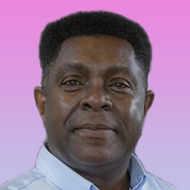Noel has been actively involved in environmental work for over 30 years. After obtaining a degree in Physics and an MSc in Environmental Technology he worked for a short time at the University of Essex on the North Sea Project (investigating atmospheric loading to the North Sea) before joining the Met Office, where he has spent most of his career. At the Met Office he developed expertise in short and long range atmospheric dispersion modelling, working initially on the Met Office's Numerical Atmospheric- dispersion Modelling Environment (NAME) as well as early versions of ADMS. He was instrumental in developing the Met Office Environmental Consultancy Group which addressed both air quality and climate change related problems. In 1999 he teamed up with GP William Bird and developed the weather and health initiative - 'Forecasting the Nation's Health'. This initiative looked to exploit the growing evidence that changes in certain weather parameters, especially temperature, at crucial times of the year, could influence the NHS workload.
Shortly after the Met Office, in collaboration with the Department of Health and the NHS trialled the first Winter Health Forecast. It was deemed a success and the Met Office has since developed the forecasts still further. In 2004 Noel Nelson was seconded to the air quality policy team at Defra as a science policy adviser, and worked on a range of projects including the transboundary development and transport of tropospheric ozone, the Air Quality Expert Group report on Air Quality and Climate Change: A UK Perspective, and contributed to the Air Quality Strategy for England, Scotland, Wales.and Northern Ireland (2007).
Noel then worked for the Royal Commission on Environmental Pollution and contributed to three Command Reports before returning to the Met Office based at the Institute for Animal Health (now the Pirbright Institute). Here Noel was engaged in research into the atmospheric transmission and dispersion of specific animal diseases such as Foot and Mouth, Bluetongue and Schmallenberg Disease. Since 2018 Noel has been working on a multi-million pound research programme, the Strategic Priority Fund Clean Air. Clean Air seeks to bring together a wide range of experts spanning the physical, social and life sciences to the atmospheric sciences, arts and humanities to address the problems of poor air quality and its impact on health. The programme is looking to better enable the UK’s experts to tackle a range of air quality related problems both now and in the future.
Many problems associated with the environment are multi-disciplinary in nature. Consequently when attempts to solve a specific environmental problem is done in isolation it often results in the creation of problems in other sectors. What is required is a co-ordinated multidisciplinary approach. This is one of the reasons Noel chose to join the IES Council. He believes the IES has been attempting to address environmental concerns at the most fundamental level; this includes keeping a watchful eye on education, which is hopefully helping to provide the up and coming generation of environmental experts with the tools they require to contribute to the solutions.
Noel joined the IES Council in 2008. He was elected Vice Chair in 2012 and Chair in 2015. In 2018 he was elected Vice President.


